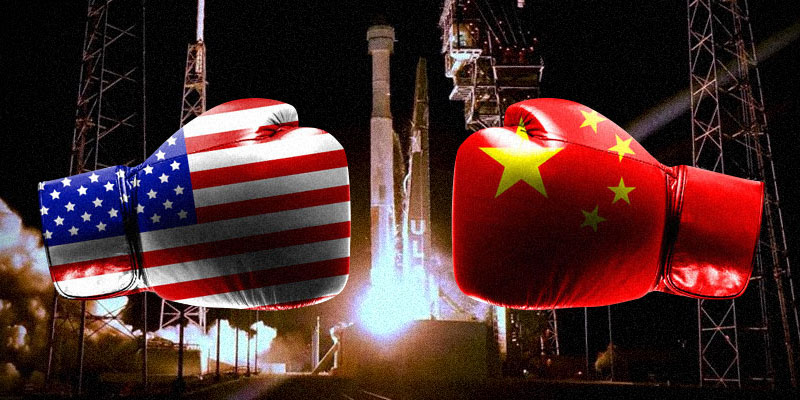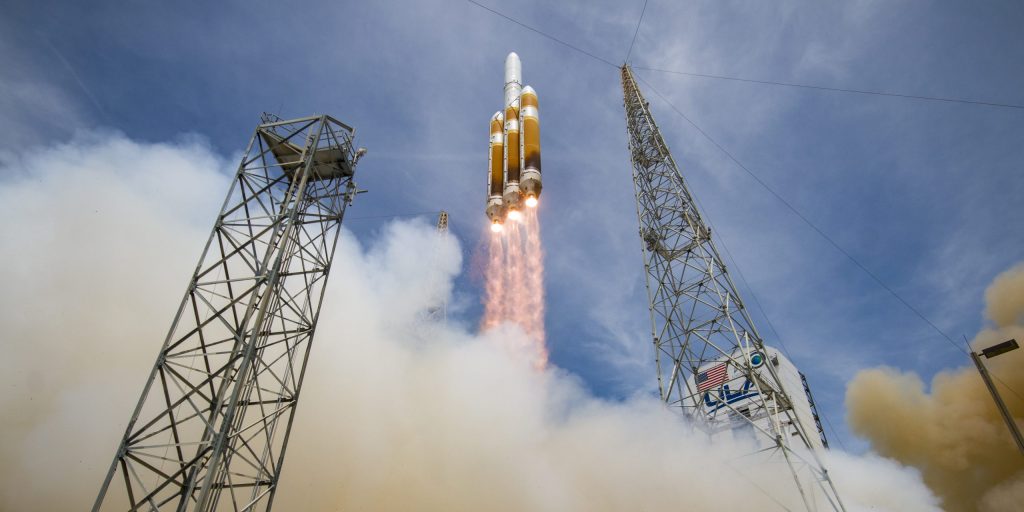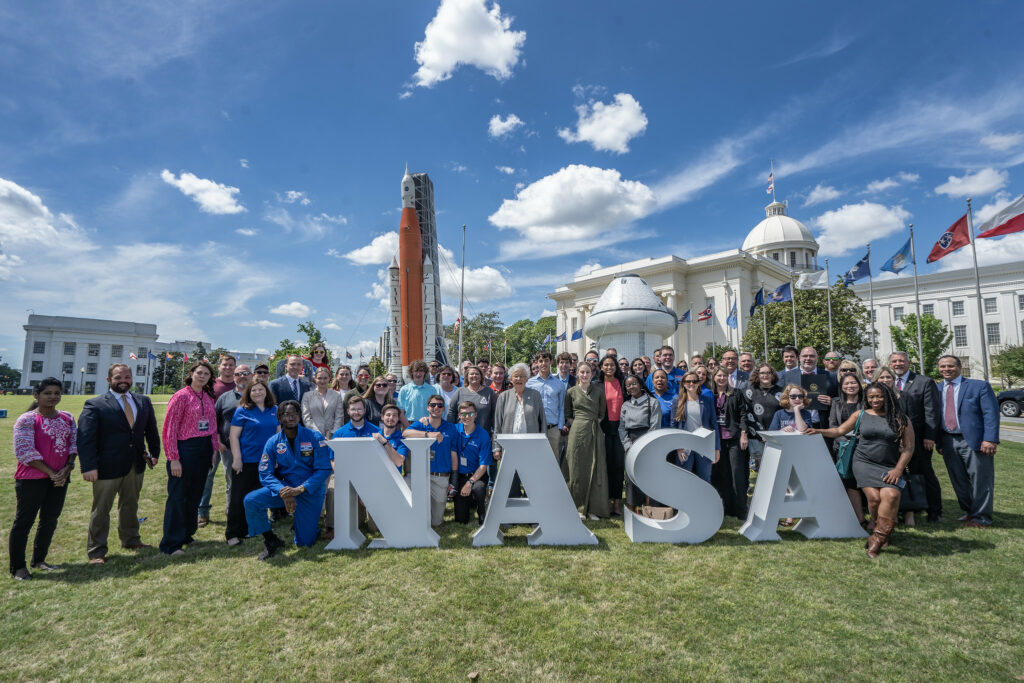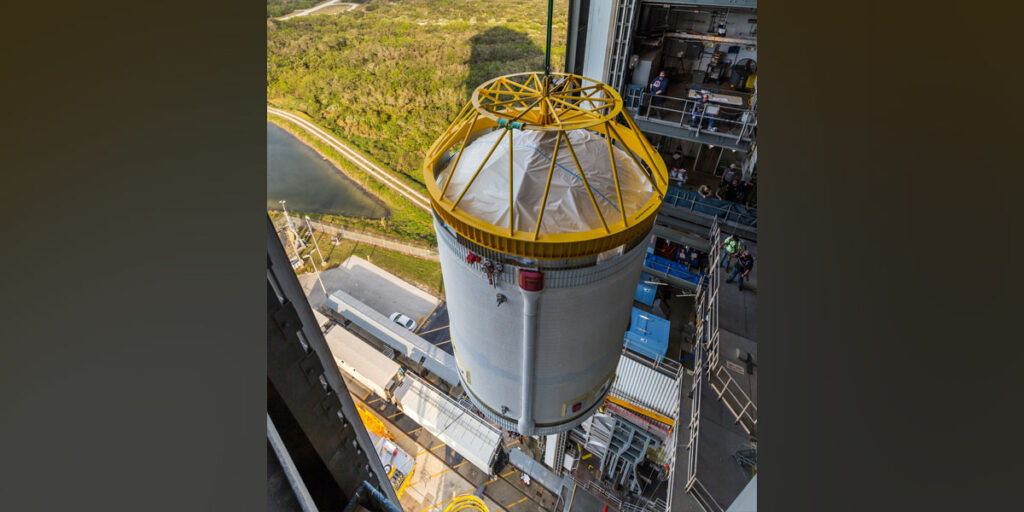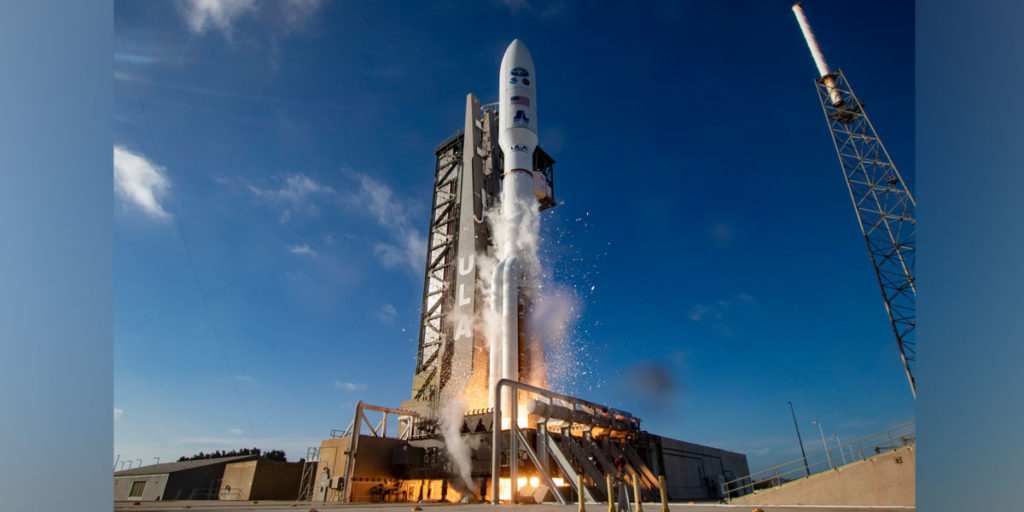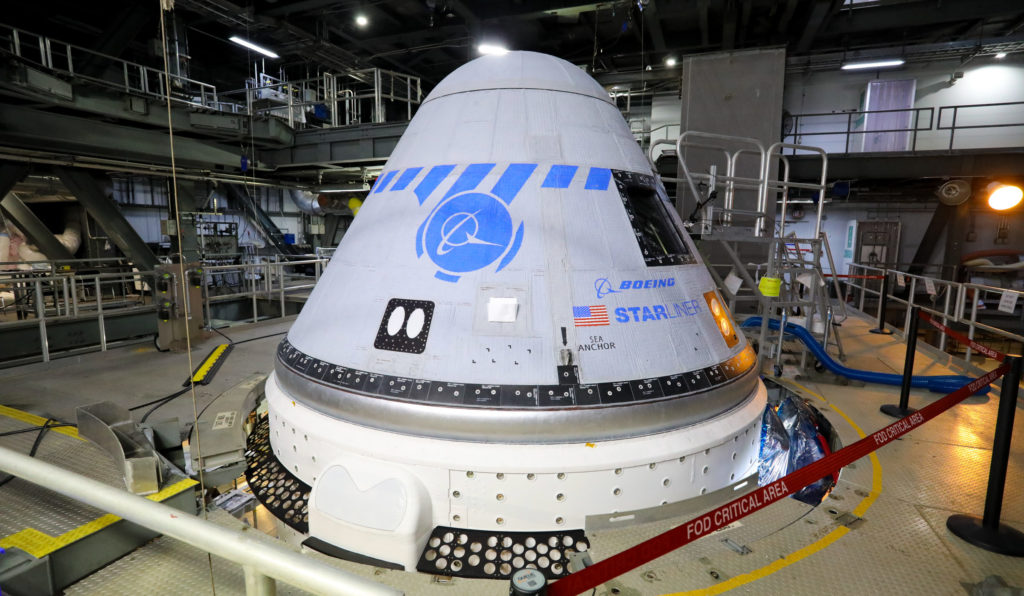When an Alabama-built rocket powers another critical national security satellite into space next week, it will be the latest such satellite in the ever-increasing use of space to gain military advantage on the ground.
The satellite, operated by the National Reconnaissance Office, will enhance communication for America’s warfighters across the globe.
However, the United States’ ability to operate in space and leverage its potential for national security purposes could be made more difficult, according to two experts who participated in the AscendxSummit conference last week.
Tory Bruno, president and CEO of Alabama rocket builder United Launch Alliance (ULA), and former Air Force Secretary Heather Wilson both concluded that foreign governments are challenging America’s space superiority, with China being at the forefront of the effort.
“The threat has changed,” explained Wilson. “The United States is heavily dependent on space for national security, and we need to respond to that emerging threat.”
That dependence on space comes from satellites which assist U.S. military operations around the world.
By the end of last year, the Air Force had 80 satellites in use, the Navy had 13, and the National Reconnaissance Office was utilizing 40. The smallest satellite being the size of a toaster and the biggest the size of a school bus.
Some serve important communications functions, while others serve as mechanisms for intelligence gathering, including the ability to provide missile warnings. These satellites are trained at the Earth and employ infrared technology to identify the hot plumes of gas that come from the end of rockets and then calculate the trajectory and warn the national command authority.
These capabilities have naturally drawn the attention of America’s adversaries.
Wilson has previously drawn attention to the threat from China with its launch of a missile the size of a telephone pole to destroy a dead weather satellite.
She said China and Russia have been developing the means to interfere with or destroy American military satellites in order to influence military operations on the ground.
Bruno expressed his belief that we stand at a pivotal moment in human history. He cited an “unprecedented set of decades that stretch out in front of us in space” with the potential to tap into near limitless resources which would allow for a self-sustaining economy on Earth.
At the same time, Bruno warned of a need for a national security space strategy which takes into account threats in orbit.
“We are heading back immediately today into an environment of pure competition,” he elaborated. “With a resurgent Russia, a rising China, countries that have ambitions around the world that not only potentially limit America’s influence but potentially limit the growth and expansion of democracy and freedom to be curtailed by totalitarian regimes and governments.”
Bruno sees access to space as essential for America to maintain its position of strength, saying that while the U.S. military is not the largest in the world, it is the most capable because it is enabled by space.
“For the first time in history, space, the previously historically peaceful domain is now being weaponized as we speak by these adversaries,” Bruno remarked. “That brings with it the potential to limit our unrivaled use of space to keep the peace around the globe.”
He said other nations seeking to weaken the U.S. military are attempting to take space away because that is a far easier approach than conventional warfare.
Wilson believes it is the space prowess of the United States which has made it a target of China and other countries.
“One of the reasons why this subject continues to interest me is that America is the best in the world at space, and our adversaries are seeking to develop the capability to deny us the use of space in crisis or at war,” she observed.
The White House earlier this month released a “National Strategy for Critical and Emerging Technologies.” The document outlines how the United States will promote and protect its competitive advantage in fields which include space and military technologies.
A statement from the White House addressed the need to develop such a national strategy:
As our competitors and adversaries mobilize vast resources in these fields, American dominance in science and technology is more important now than ever, and is vital to our long-term economic and national security. The United States will not turn a blind eye to the tactics of countries like China and Russia, which steal technology, coerce companies into handing over intellectual property, undercut free and fair markets, and surreptitiously divert emerging civilian technologies to build up their militaries.
When asked about the White House’s national strategy, Bruno acknowledged the country’s innovation chain is now susceptible to foreign interference in a way it never has been before.
“At least one of our adversaries has figured out, why spy when you can buy?” he remarked.
China’s ability to absorb U.S. technology and innovation is something which will demand significant attention, according to Bruno.
“There are a lot of elements to that innovation chain, and most of them are actually pretty open,” he concluded. “As a Chinese company, you can come and buy key elements of the supply chain where technologies reside. You can sponsor members of your intelligence community, or your armed forces, to go to America and receive the best STEM education on the planet and bring all of that home. You can even invest to influence companies through venture capital and even do that through shell companies so that your presence, influence and access is not as obvious. All of that is right now an open door to both of our adversaries.”
Tim Howe is an owner of Yellowhammer Multimedia




